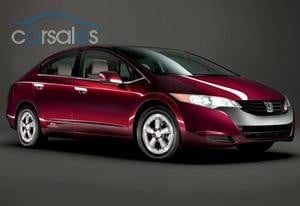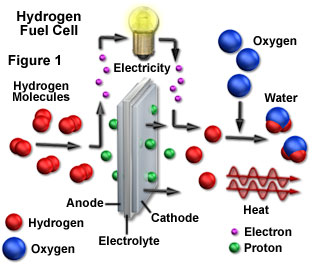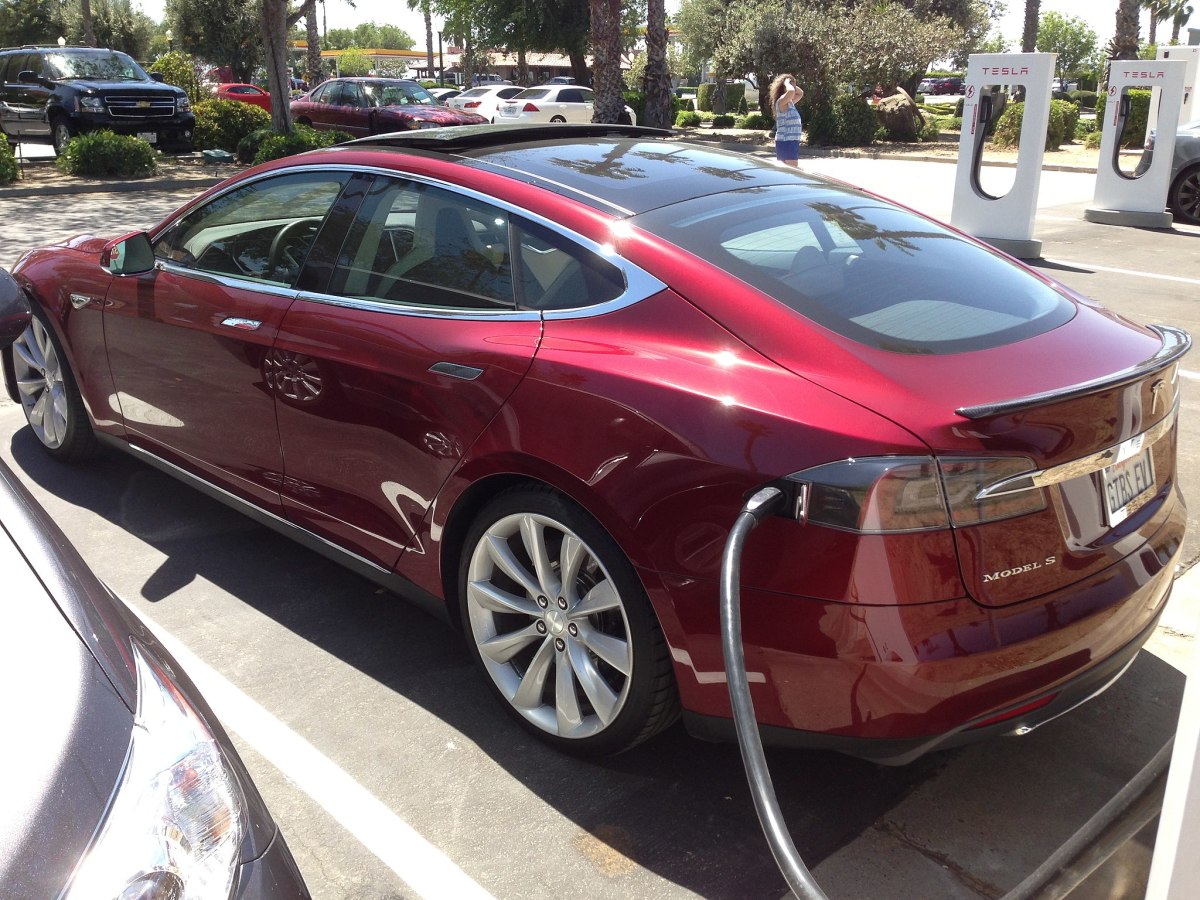Hydrogen Fuel Cell Vehicle

Hydrogen Fuel cells
In a continuation to my article about ending America’s dependency on foreign oil, I am going to cover hydrogen fuel cell vehicles (to read part 1 click here). Fuel cell vehicles are an emerging technology that the automotive industry has been researching for quite a few years now. Before the latest push for electric vehicles hydrogen fuel cell powered vehicles looked like the way of the future. Like any technology there are some good and bad aspects to fuel cells.

What is a hydrogen fuel cell?
A hydrogen fuel cell is not a motor. It is a devise that converts hydrogen gas (H2) into electricity. That electricity can then be used to power an electrical motor. The system works by passing hydrogen gas through an electrolyte that converts the hydrogen into positive hydrogen ions (protons) and negative hydrogen ions (electrons). Inside the electrolyte there is a proton exchange membrane that divides the protons from the electrons. The protons pass through the membrane to the cathode, while the electrons flow to the anode. This produces the electrical current that is used to power the electric motor that is connected to the fuel cell system.
Advantages
If the only fuel feeding the fuel cell is hydrogen gas, then only emission will be water. There is no combustion process involved. The efficiency can be as high as 70% compared to the best combustion engines that top out around 40% efficiency. They can run on waste hydrogen that is harvested from natural gases that are produced at landfills or waste water treatment plants. The system could take us completely off of foreign oil. Unlike the case with plug in electric vehicles, we would not need a massive public infrastructure overhaul to supply the electrical power for our vehicles. The hydrogen powered vehicles will provide us with an extended range over the electric battery powered alternative. Getting 300 miles pre tank is not a problem with a hydrogen fuel cell vehicle.
Problems and challenges
There are many major problems with hydrogen fuel cells. Number one is the cost. This is why government can not mandate that we drive alternate fuel vehicles. If the technology is not there, then automakers can’t produce and sell the vehicles. It is estimated that the cost to operate a hydrogen fuel cell powered vehicle could be around $225 per kilowatt if they were mass produced. The Conventional engines that we currently drive cost around $50 per kilowatt. As technology advances automotive companies believe that they can reach reduce the cost of $30-$50 per kilowatt for hydrogen fuel cell vehicles. Currently Honda has a fuel cell battery assisted vehicle named the Honda FCX Clarity. A limited number were available for lease at 3 dealerships in California for $600/month.
Another problem would be the fuel change over. We currently do not have hydrogen stations on every corner. We would need to replace the current gas stations with hydrogen refilling stations. There would be added safety concerns with the handling of hydrogen which if it is liquid is extremely cold, and if it is gas it is flammable. Once everything is in place and public awareness is elevated, the change over should not be a problem.
If we are traveling around with tanks of highly flammable and sometimes explosive gas in our cars certain safety precautions must be taken. This isn’t as big of a problem that you might think, since we already carry around gasoline. There are certain challenges to using hydrogen over gasoline since it will ideally be pressurized so that we can get up to 300 miles per fill up. The pressurization is a change from our current fuel storage tanks, but it is not a change that can not be handled by the auto companies. There are testing and regulations in place to ensure the public safety when dealing with hydrogen gas.
Even though hydrogen fuel cells do not directly produce pollution, their fuel source might be creating pollution. Just like electric vehicles that need more power plants available for their implementation on a mass scale. Hydrogen would have to be produced on a mass scale to use it to replace gasoline as our primary transportation fuel source. Pollution during the hydrogen producing process is a possibility. Currently 95% of hydrogen that is produced comes from fossil fuels, which creates pollutants during the process.
Versatility
Hydrogen fuel cells can be set up to work with several different fuels. There are reforming systems that can isolate the hydrogen from Gasoline, Ethanol, and other natural gases. These reformers would allow us to stick with the current fueling stations, and eliminate the need for pressurized tanks. Reforming systems come with a lot of added difficulties and are probably not going to be available anytime in the near future. There is a problem with impurities that will destroy the proton membrane of the fuel cell if the reformers do not work properly. Sadly with the already high costs of hydrogen fuel cell vehicles, the additional cost of an on board reforming system does not make practical sense.
Hydrogen fuel cell powered vehicles do seem to be the way of the future. They are still limited by cost factors. If they are packaged together with the battery powered system they will satisfy the needs of most everyday drivers. They are also more likely to satisfy the needs of large commercial trucks than pure electric battery operated systems. Fuel Cells will reduce emissions and increase efficiency over internal combustion engines. They will take us completely off of foreign oil.
With government subsidies and research going heavily into the electric vehicle industry, the Hydrogen Fuel Cell industry has moved to the back burner once again. The consequences of government intervention into vehicle development are on full display. With the failures of the Chevy Volt, maybe we can once again focus on fuel cell technology







